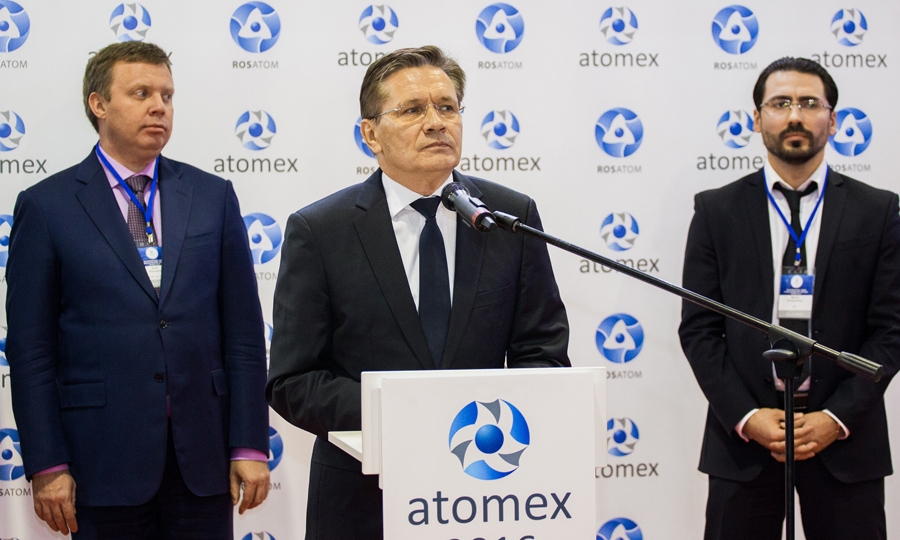
Moscow Hosted ATOMEX Forum
back to contents“We must be prepared for stringent regulatory requirements of customer countries and be proactive,” Rosatom’s CEO Alexei Likhachov stressed at the ATOMEX opening ceremony. “Procurement laws and technical regulations should provide for firm guarantees of equipment quality and safety. We must conform to laws both in Russia and customer countries,” Mr. Likhachov noted.
A major change will be the pre-bid audit of manufacturers. “Manufacturers will have to confirm that their documents and technology fit our requirements,” Roman Zimonas, Rosatom’s Director of Procurement Department, explained at the plenary session. “The audit will help us see what kind of products they manufacture, what staff and what licenses they have, how their machinery is tested, where it has been supplied and how much. Besides, such companies will need to prove that they are financially fit to produce equipment for Rosatom.”
Audits are supposed to be performed when procuring equipment that is critical for safety and delivery of a project, such as nuclear construction.
“We want to have bids only from the companies that are absolutely certain to fulfill their obligations properly and promptly,” Mr. Zimonas noted. “On-site inspections and pre-contractual assessments have long been a common practice abroad.”
Marcus Kratz, Supply Quality Manager at Siemens, confirmed Mr. Zimonas’ words. He said that Siemens had a record on each of its suppliers, collecting information about the companies and quality of their services. “If the equipment has many defects, this is reflected in the record, so we increase the number of on-site inspections,” Mr. Kratz said. If products are of good quality, inspections become rarer. “Suppliers have KPIs that are based on adherence to production processes. All of them are obliged to promptly submit quality documentation. Summing up the information on performance of each supplier, we calculate a quality index that is used to conclude whether a supplier is good or not.” A similar idea – business reputation rating – is now implemented by Rosatom. The company operates a comprehensive online database of its suppliers.
Dialog with foreign colleagues
Rosatom works with a large number of international suppliers and thus has to continuously improve supplier communication. In 2016, Rosatom provided simplified access to its online procurement system for foreign companies. They do not need an electronic signature anymore and have an option to submit bidding documents in hard copy.
One of the breakout sessions at ATOMEX 2016 was dedicated to equipment supplies for VVER reactors constructed outside Russia. This year’s focus was given to Hanhikivi-1, a nuclear station project in Finland. Philipp Kashin from the Supply Chain Management at RAOS Project Oy said that quality management systems of Hanhikivi suppliers need to comply with both requirement of STUK (Finland’s nuclear regulator) and IAEA standards. Suppliers should also take into account that all documents pertaining to the VVER-1200 construction in Finland are made in Russian and English.
Pekka Ottavainen, Director of FinNuclear, drew attention to the problems of cross-cultural communication. According to him, it is at times difficult to find a common language with representatives of another country because of different approaches to problem solving. Whatever issue arises, parties should seek a mutually beneficial solution, he said.
The meeting was attended by many international suppliers. Representatives of Siemens Russia inquired about the possibility of giving RAOS Project Oy free advice on the choice of electric motors. Philipp Kashin replied that this was possible.
Elena Sinitsyna, Deputy Director of Rosatom’s Procurement Department, spoke about the company’s industrial procurement standards and said that all of them had been recently translated into English for the convenience of foreign suppliers.




